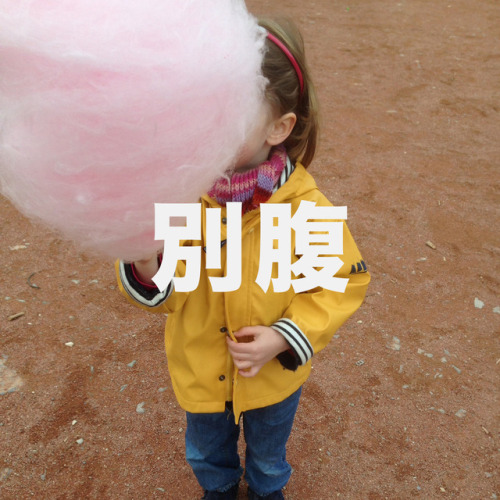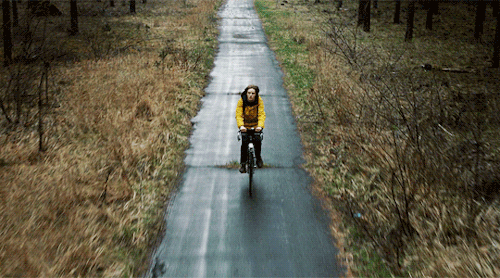German Vocabulary: Literature
German Vocabulary: Literature

Die Literatur - literature
Das Buch - book Das Taschenbuch - paperback Der Buchladen - bookshop Die Bücherei - library
Der Leser (m) - reader Die Leserin (f) - reader
Der Autor (m) - author Die Autorin (f) - author Der Schriftsteller (m) - writer Die Schriftstellerin (f) - writer Der Text - text Die Geschichte - story
Die Epik - epic
Die Erzählung - narrative Die Kurzgeschichte - short story Der Roman - novel Die Novelle - novella Das Märchen - fairy tale Die Fabel - fable Die Parabel - parable Das Epos - epic poem Der Kriminalroman - crime novel Die Kinderliteratur - children’s literature Die Autobiographie - (auto)biography Die Memoiren - memoirs Das Tagebuch - diary Die Frauenliteratur - feminist literature Die Belletristik - fiction Das Sachbuch - non fiction Der Kriegsroman - war novel
Der Titel - title Der Untertitel - subtitle Das Kapitel - chapter Die Einleitung - introduction Das Vorwort - preface Die Anmerkung - note Das Zitat - quote Der Prolog - prologue Der Epilog - epilogue Der Absatz - paragraph Die Zeile - line Die Seite - page
Die Handlung - plot Die Rahmenhandlung - frame story Die Nebenhandlung - subplot/secondary plot Der Inhalt - content Die Rückblende - flashback Die Vorausdeutung - foreshadowing Der rote Faden - the central theme Die Figur - character Die Hauptfigur - main character Die Nebenfigur - secondary/minor character Der Held (m) - hero Die Heldin (f) - hero Die direkte Rede - direct speech Die indirekte Rede - indirect speech Der Bewusstseinsstrom - stream of consciousness Der Höhepunkt - climax
Die Lyrik - poetry
Das Gedicht - poem Der Dichter (m) - poet Die Dichterin (f) - poet Der Vers - verse Der Reim - rhyme Die Strophe - strophe Die Gedichtform - type of poem Die Ballade - ballad Das Sonett - sonnet Das Lied - song Die Ode - ode Die Hymne - hymn
Das Drama - drama (play)
Die Dramatik - drama Die Tragödie - tragedy Die Komödie - comedy Die Tragikkomödie - tragicomedy Der Akt - act Die Aufführung - performance Die Darstellung - acting Der Schauspieler (m) - actor Die Schauspielerin (f) - actress Die Szene - scene Die Bühne - stage Das Bühnenbild - stage set Die Rede - speech Der Monolog - monologue Der Dialog - dialogue Der Konflikt - conflict Die Katastrophe - catastrophe
Die Literaturepochen - Literary Periods
Die Mittelalterliteratur - Medieval Literature (750-1500) Der Humanismus - Humanism (1500–1650) Der Barock - Baroque (1600–1720) Die Aufklärung - The Enlightenment (1680–1789) Der Sturm und Drang - Storm and Stress (1760s-1780s) Die Weimarer Klassik - Weimar Classicism (1788–1832) Die Romantik - Romanticism (1790s-1880s) Der Realismus - Realism (1848–1890) Der Naturalismus - Naturalism (1880–1900) Der Expressionismus - Expressionism (1910–1920) Die Exilliteratur - literature written in exile during Nazi Germany Die Nachkriegsliteratur - Post-war Literature (1945–1967) Die Zeitgenössische Literatur - Contemporary Literature (since 1989)
+ “literature” in some other languages: Albanian: letërsi Danish: litteratur Icelandic: Bókmenntir Italian: letteratura French: Littérature Arabic: الأدب Turkish: Edebiyat Afrikaans: literatuur Swahili: fasihi Zulu: izincwadi Filipino: panitikan Maori: tuhinga Bengali: সাহিত্য Chinese (Traditional): 文學 (wénxué)
More Posts from Earthquakedeer and Others
German Vocabulary: Die Stadt - The City

Picture: Town hall square and Alster lake, Hamburg, Germany.
Die Stadt (f) - The city
das Gebäude (n) - the building
die Straße (f) - the street
der Bürgersteig (m) / das Trottoir (n) (Switzerland & Austria) - the pavement
das Hochhaus (n) - the tower/high-rise building
der Wolkenkratzer (m) - the skyscraper
die Ampel (f) - the traffic light
das Verkehrsschild (n) - the traffic sign
das Auto (n) - the car
der Bus (m) - bus
die Bushaltestelle (f) - the bus stop
der Zug (m) - the train
die Bahn (f) - the train (less formal)
der Bahnhof (m) - the train station
der Zebrastreifen (m) / der Schutzweg (m) (Austria) / der Fussgängerstreifen (m) (Switzerland) - the crosswalk
das Taxi (n) - the taxi
das Fahrrad (n) - the bicycle
das Krankenhaus (n) / das Spital (n) (Switzerland & Austria) - the hospital
die Gasse (f) - the alleyway
die Kreuzung (f) - the crossing
die Garage (f) - the garage
der Parkplatz (m) - the parking space/parking lot
das Parkhaus (n) - the multi-story car park
das Rathaus (n) - town hall
der Verkehr (m) - the traffic
das Haus (n) - the house
der Platz (m) - the square
die Apotheke (f) - the pharmacy
das Kino (n) - the cinema
Die Post (f) / Das Postamt (n) - the post office
das Hotel (n) - the hotel
das Restaurant (n) - the restaurant
die Bank (f) - the bank
die Schule (f) - the school
die Universität (f) - the university
der Flughafen (m) - the airport
das Stadion (n) - the stadium
der Park (m) - the park
der Spielplatz (m) - the playground
der Kindergarten (m) - the kindergarten
der Fluss (m) - the river
der Hafen (m) - the harbor/port
die Philharmonie (f) - the philharmonic
die Oper (f) - the opera
das Theater (n) - the theater
die Kirche (f) - the church
die Kathedrale (f) / der Dom (m) - the cathedral
Die Moschee (f) - the Mosque
Die Synagoge (f) - the Synagogue

かっこいい/かわいい熟語のリスト A list of cool/cute Japanese compound words
別腹(べつばら)→ (n.) having room for dessert even if one is full (lit. extra stomach)
口寂しい(くちさびしい)→ (n.) the feeling of wanting to put something in one’s mouth (lit. mouth + lonely)
食い違い(くいちがい)→ (n.) diverging or conflicting opinions (lit. eating + different)
食い倒れ(くいだおれ)→ (n.) getting into debt by extravagance in food (lit. eating + bad debt/collapse)
寝酒(ねさけ)→ (n.) night cap ⭐︎☽ (lit. sleep + alcohol)
昼寝(ひるね)→ (n.) siesta, nap (lit. daytime + sleep)
寝坊(ねぼう)→ (n.) late riser, sleepyhead (lit. sleep + someone who~)
朝寝(あさね)→ (n./–suru v.) sleeping late in the morning (lit. morning + sleep)
早起き(はやおき)→ (n.) early riser (lit. early + wake up)
歩き回る(あるきまわる)→ (v.) walking about (lit. walk + turn)
水遊び(みずあそび)→ (n.) splashing about (lit. water + play)
長話(ながはなし)→ (n.) a long talk (lit. talk + long)
話々(はなしばなし)→ (n.) small talk (lit. talk + talk)
昔話(むかしばなし)→ (n.) legends, old tales, reminiscence (lit. olden days + talk)
心強い(こころずよい)→ (–i adj.) reassuring, heartening (lit. heart + strong)
猫好き(ねこずき)→ (n.) cat lover (lit. cat + like)
猫舌(ねこじた)→ (n.) dislike of hot drinks or food (lit. cat + tongue)
積ん読(つんどく)→ (n./–suru v.) buying books and not reading them (lit. pile up/stack + read)
忘れ物(わすれもの)→ (n.) something you left behind, forgot (lit. forgot + thing)
蛇足(だそく)→ (n.) useless addition, redundancy (lit. snake + legs) ˉ̶̡̭̭ ( ´͈ ᗨ `͈ ) ˉ̶̡̭̭
Be sad but get up. You don’t have to shower. You can put on the same clothes you wore yesterday. Nobody will care. The sky is blue, wildflowers are blooming by the side of the road. Strangers have stories to tell. Go for a walk, go for a drive, go to a greenhouse, a bookstore, a movie theater. You can stay in bed but nothing is going to happen there. Sometimes you’ve really just got to get the fuck up.
我田引水
がでんいんすい
Literally: Drawing water for your own rice paddy. Meaning: Doing or saying things for your own benefit.
(via uni-venture)

“Venus Beach”
blue surface with white fog by takay Via Flickr: and autumn colors. Matsudai,Niigata,japan.
Dark German Vocab

Vergangenheit (f) - past Gegenwart (f) - present Zukunft (f) - future
Zeit (f) - time Zeitreise (f) - time travel Wurmloch (n) - wormhole schwarzes Loch (n) - black hole Maschine (f) - machine Zeitmaschine (f) - time machine
Kind(-er) (n) - child(-ren) Elternteil (m) - parent Fremder (m) - stranger Polizei (f) - police
Selbstmord (m) - suicide Brief (m) - letter Höhle (f) - cave Wald (m) - forest Atomkraftwerk (n) - nuclear power plant
vermisst [inf. vermissen] - missing [inf. to miss] verschwinden - to disappear
zweitausendneunzehn - 2019 neunzehnhundertsechsundachtzig - 1986 neunzehnhundertdreiundfünfzig - 1953
Let me know if there are any mistakes!

thank you, wiktionary

Did you know there are 2 type of sleep in Japanese words?
For sleeping as in “go to bed/lying down to take a nap”, it is 寝る (Neru). And the opposite is 起きる (Okiru), which means to get up from the lie down posture).
For sleeping as in “you’re in train/classroom and fell asleep” (not necessarily lying down), it is 眠る (Nemuru). So to wake up someone who’s sleeping on a train, you will need to use 目覚める (Mezameru), which means to open their eyes and be sober.
The key here is in the posture! :D But sometimes they are also interchangeable. One thing to note though, when you’re talking about “What time do you go to sleep at night?” or anything similar, you always use 寝る (Neru).
![[417] かもめ | kamome | seagull](https://64.media.tumblr.com/c1e7646b3a14595b185694f8ea9cd4e0/tumblr_otlts67fAZ1v0vbxgo1_500.png)
[417] かもめ | kamome | seagull
-
 speedygonza liked this · 1 year ago
speedygonza liked this · 1 year ago -
 zzzoooeee liked this · 2 years ago
zzzoooeee liked this · 2 years ago -
 toastwrld liked this · 2 years ago
toastwrld liked this · 2 years ago -
 sourpatches111 liked this · 3 years ago
sourpatches111 liked this · 3 years ago -
 bambi-thedeer liked this · 3 years ago
bambi-thedeer liked this · 3 years ago -
 spanishcarlos liked this · 3 years ago
spanishcarlos liked this · 3 years ago -
 cumbresborrascosas liked this · 3 years ago
cumbresborrascosas liked this · 3 years ago -
 cinnamon-squid liked this · 3 years ago
cinnamon-squid liked this · 3 years ago -
 noblerotamer liked this · 3 years ago
noblerotamer liked this · 3 years ago -
 justanotherpiccplayer reblogged this · 3 years ago
justanotherpiccplayer reblogged this · 3 years ago -
 justanotherpiccplayer liked this · 3 years ago
justanotherpiccplayer liked this · 3 years ago -
 ehhhhhh liked this · 3 years ago
ehhhhhh liked this · 3 years ago -
 clown-machine liked this · 3 years ago
clown-machine liked this · 3 years ago -
 noideaforausername liked this · 3 years ago
noideaforausername liked this · 3 years ago -
 mix-force liked this · 3 years ago
mix-force liked this · 3 years ago -
 xxnessa-morgothxx liked this · 3 years ago
xxnessa-morgothxx liked this · 3 years ago -
 koiigarden liked this · 3 years ago
koiigarden liked this · 3 years ago -
 autumnal-space-cherry liked this · 3 years ago
autumnal-space-cherry liked this · 3 years ago -
 a-german-learning-clown reblogged this · 3 years ago
a-german-learning-clown reblogged this · 3 years ago -
 deliciousslimekidbonk liked this · 3 years ago
deliciousslimekidbonk liked this · 3 years ago -
 lexivass liked this · 3 years ago
lexivass liked this · 3 years ago -
 lovyyyk liked this · 3 years ago
lovyyyk liked this · 3 years ago -
 origami10 liked this · 3 years ago
origami10 liked this · 3 years ago -
 liliran reblogged this · 3 years ago
liliran reblogged this · 3 years ago -
 blackexistentialturtelneck liked this · 3 years ago
blackexistentialturtelneck liked this · 3 years ago -
 wilhelm--fink liked this · 3 years ago
wilhelm--fink liked this · 3 years ago -
 baekitty reblogged this · 3 years ago
baekitty reblogged this · 3 years ago -
 baekitty liked this · 3 years ago
baekitty liked this · 3 years ago -
 langblrspace liked this · 3 years ago
langblrspace liked this · 3 years ago -
 dumbassnarcissus liked this · 3 years ago
dumbassnarcissus liked this · 3 years ago -
 ginger-moomin reblogged this · 3 years ago
ginger-moomin reblogged this · 3 years ago -
 ginger-moomin liked this · 3 years ago
ginger-moomin liked this · 3 years ago -
 ckaymaria liked this · 3 years ago
ckaymaria liked this · 3 years ago -
 cutelanguagestuff reblogged this · 3 years ago
cutelanguagestuff reblogged this · 3 years ago -
 peachybananatea liked this · 3 years ago
peachybananatea liked this · 3 years ago -
 justreadreid liked this · 3 years ago
justreadreid liked this · 3 years ago -
 hystericalchemicalreaction liked this · 3 years ago
hystericalchemicalreaction liked this · 3 years ago -
 ehrenwertes-herz liked this · 3 years ago
ehrenwertes-herz liked this · 3 years ago -
 w4g3sl4v3 liked this · 3 years ago
w4g3sl4v3 liked this · 3 years ago -
 wandererofdeserts liked this · 3 years ago
wandererofdeserts liked this · 3 years ago -
 the-lost-wanderer liked this · 3 years ago
the-lost-wanderer liked this · 3 years ago -
 tanaya90 liked this · 3 years ago
tanaya90 liked this · 3 years ago -
 reka-langblr reblogged this · 3 years ago
reka-langblr reblogged this · 3 years ago -
 queenfernyoftheplants liked this · 3 years ago
queenfernyoftheplants liked this · 3 years ago -
 tiyarsnvv liked this · 3 years ago
tiyarsnvv liked this · 3 years ago
Just a person learning Japanese. Self-learner. If you're also studying Japanese and want to practice with someone (and you're also very much a beginner) then message me! はじめまして! さびーなです。よとしく!
196 posts